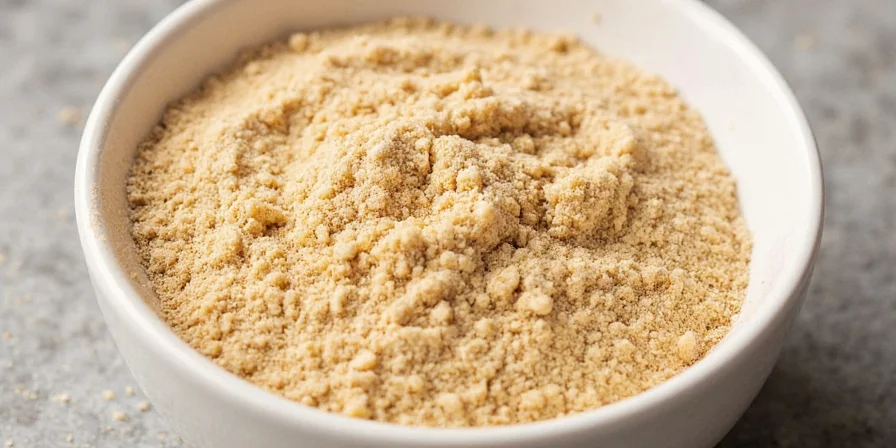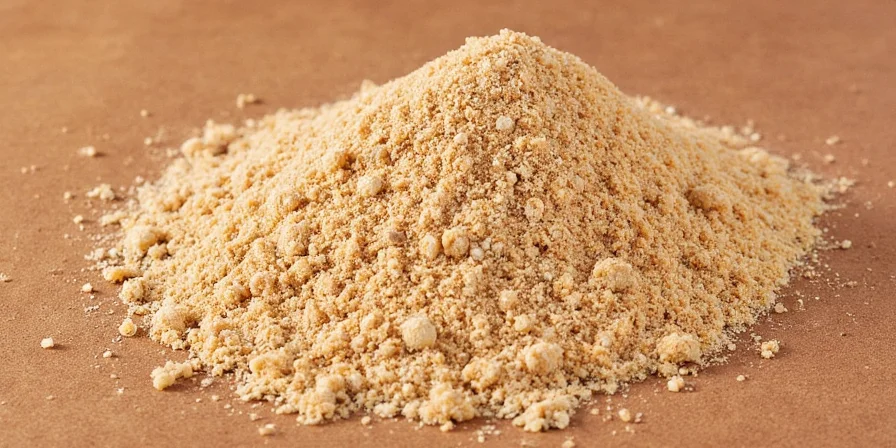Onion powder substitution ratio: Use 1 teaspoon of onion powder to replace 1/2 cup (80g) of chopped fresh onions. This precise conversion solves the #1 problem home cooks face—texture issues and inconsistent flavor when swapping between fresh and powdered forms. Get professional results by understanding exactly when to use onion powder instead of fresh onions, plus avoid the 4 critical mistakes that ruin dishes.
Table of Contents
- What Exactly Is Onion Powder?
- Why Use Onion Powder Instead of Fresh Onions?
- Top 5 Practical Tips for Using Onion Powder
- Common Mistakes (and How to Avoid Them)
- Onion Powder to Fresh Onion Conversion Chart
- Spice Pairing Guide: Best Combinations
- Storage Tips: Keep It Fresh for Years
- Onion vs. Garlic Powder: When to Use Which
What Exactly Is Onion Powder?
Onion powder is dehydrated onions ground into a fine powder. Unlike fresh onions, which add moisture and texture, onion powder delivers concentrated savory flavor without water content—making it ideal for dry applications where excess moisture would compromise results. The dehydration process concentrates the natural sugars and umami compounds that give onions their distinctive taste.
How Is It Made?
- Onions are thinly sliced and fully dehydrated at controlled temperatures
- Dried slices undergo milling to achieve uniform particle size
- Quality versions omit anti-caking agents to preserve pure flavor
Why Use Onion Powder Instead of Fresh Onions?
Onion powder shines in specific cooking scenarios where fresh onions fall short. Its real value comes from solving practical kitchen problems:
| Best For | Why It Works Better |
|---|---|
| Dry rubs for meats | Prevents sogginess while delivering even flavor distribution |
| Batters and doughs | Won't make mixtures watery or affect texture |
| Long-cooking dishes | Flavor won't dissipate during extended cooking times |
| Instant flavor boost | No chopping required—perfect for weeknight cooking |
Top 5 Practical Tips for Using Onion Powder
- Bloom in oil first: Stir powder into hot oil for 30 seconds before adding other ingredients to maximize flavor release
- Measure properly: 1 teaspoon onion powder = 1/2 cup chopped fresh onions (not 1:1 as many assume)
- Add at right time: For soups/stews, add mid-cooking; for dry rubs, apply before cooking
- Reconstitute for marinades: Mix 1 tsp powder with 2 tsp water to replace fresh onions
- Balance acidity: Use in tomato-based dishes to mellow sharpness without adding sweetness

Common Mistakes (and How to Avoid Them)
Most home cooks make these errors that compromise flavor:
- Incorrect substitution: 1 tsp powder ≠ 1 fresh onion (use 1 tsp powder = 1/2 cup chopped onions)
- Overuse in wet dishes: When replacing fresh onions in soups, reduce other liquids by 2 tbsp per tsp powder
- Adding too late: In long-cooking dishes, add early to allow flavors to meld properly
- Poor storage: Store in airtight container away from light and moisture to maintain potency
Onion Powder to Fresh Onion Conversion Chart
Use this practical reference for perfect substitutions in any recipe:
| Fresh Onion Amount | Onion Powder Equivalent | Liquid Adjustment |
|---|---|---|
| 1/4 cup chopped | 1/4 teaspoon | None needed |
| 1/2 cup chopped | 1/2 teaspoon | Reduce liquids by 1 tbsp |
| 1 cup chopped | 1 teaspoon | Reduce liquids by 2 tbsp |
| 1 medium whole onion | 1 1/2 teaspoons | Reduce liquids by 3 tbsp |
Spice Pairing Guide: Best Combinations
Onion powder creates balanced flavors when paired correctly. These combinations work reliably in everyday cooking:
| Spice Combination | Best For | Ratio (onion powder:other) |
|---|---|---|
| Onion + Garlic Powder | All-purpose seasoning, meats, vegetables | 1:1 |
| Onion + Paprika | Barbecue rubs, stews, chili | 1:1/2 |
| Onion + Cumin | Tacos, beans, roasted vegetables | 1:1/4 |
| Onion + Mustard Powder | Grilled meats, salad dressings | 1:1/8 |

Storage Tips: Keep It Fresh for Years
Preserve flavor potency with these practical storage methods:
- Store in an airtight container away from heat and light
- Include a silica packet to absorb moisture
- Keeps well for 2-3 years when stored properly (test potency by rubbing between fingers)
- For extended storage, freeze in vacuum-sealed portions
Onion vs. Garlic Powder: When to Use Which
Understanding their differences prevents flavor imbalances:
| Consideration | Onion Powder | Garlic Powder |
|---|---|---|
| Best For | Tomato sauces, breads, dry rubs | Butter sauces, roasted meats, dressings |
| Heat Tolerance | Stable up to 350°F | Begins degrading at 250°F |
| Acidic Dishes | Maintains flavor in tomatoes | Loses potency in high-acid foods |
| Flavor Development | Add mid-cooking for best results | Add early for full flavor development |
Frequently Asked Questions (FAQ)
Can onion powder replace fresh onions in all recipes?
No—substitute only in cooked dishes like soups, stews, and baked goods. In wet dishes, use 1 tsp powder + reduce other liquids by 2 tbsp per cup of fresh onions replaced. Never substitute in raw applications like salads where texture matters.
Why does my onion powder taste bitter in baked goods?
Bitterness occurs when powder exceeds 1.5% of dry ingredients or is exposed to high oven temperatures. Reduce quantity slightly and ensure proper liquid adjustments for optimal results.
How do I test if my onion powder is still good?
Rub ¼ tsp between damp palms. Fresh powder should release immediate pungent aroma. If scent is weak or musty, it's lost potency—time to replace it.
Does onion powder contain added MSG or preservatives?
Quality brands contain 100% dehydrated onions. Check labels for "no additives"—lower quality versions may include anti-caking agents. Organic options guarantee purity.










 浙公网安备
33010002000092号
浙公网安备
33010002000092号 浙B2-20120091-4
浙B2-20120091-4